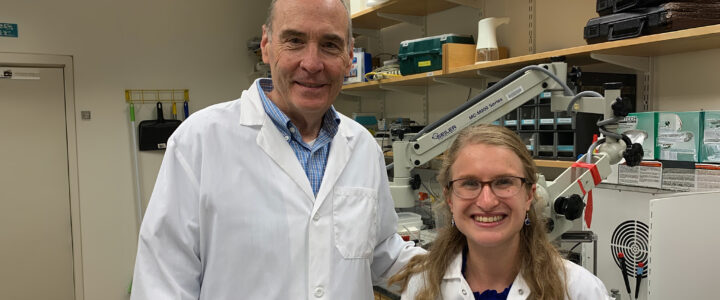Discover how a $100,000 FRAXA grant supports research at MIT targeting neuron dysfunction in Fragile X, aiming to develop new therapies to improve sensory processing and behavior.
Read moreBiomarkers
Using Exosomes to Discover Fragile X Biomarkers

How can a blood test give an accurate picture of brain activity? With this grant from FRAXA, Dr. Martire and Dr. Boussadia will try to use unique particles called exosomes – which can travel from brain cells to the blood stream – to evaluate the effects treatments are having on the brain.
Read moreDevelopmental Motor Phenotype in Fragile X Syndrome

One of the lesser known signs of Fragile X is unsteady walking. This is also very easy to evaluate in the clinic: no blood tests are required! With a $100,000 grant from FRAXA Research Foundation, this team will develop objective new outcome measures of gait for future treatment trials and also to see if exercise could improve other symptoms of Fragile X.
Read moreTranscriptional Signatures Sensitive to Cognition-Improving Pharmacological Treatments in Fragile X Syndrome
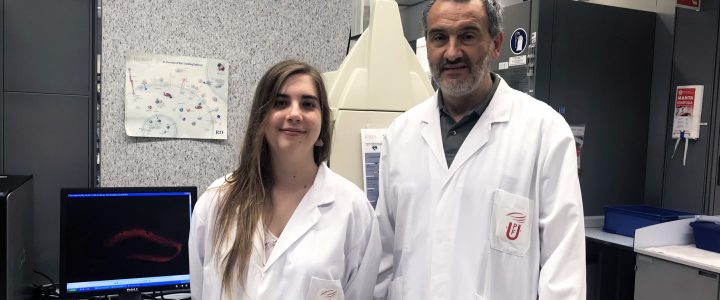
The Fragile X field needs biomarkers to accurately measure the effects of potential treatments in both Fragile X mice and in humans. Dr. Ozaita and his team have found molecular features in the brain that can serve as an objective signature for the syndrome. They will use this tool to test cannabidiol and two other drugs in mice.
Read moreRecruiting: Clinical Study of Non-Invasive EEG for Children Ages 2-7
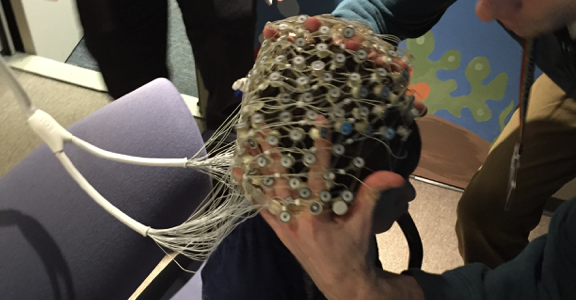
Dr. Carol Wilkinson, MD PhD, and Dr. Charles Nelson, PhD, at Boston Children’s Hospital are recruiting children ages 2-7 years with Fragile X syndrome to participate in a study of brain differences using non-invasive EEG.
Read moreLovamix: Clinical Trial of Combined Treatment of Minocycline and Lovastatin in Fragile X Syndrome
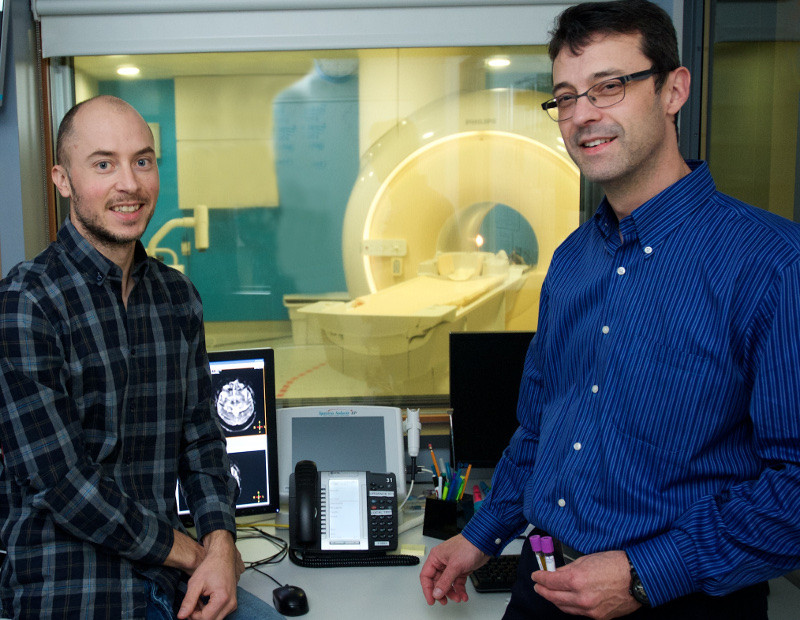
With a $66,714 grant from the FRAXA Research Foundation awarded over 2015-2017, Dr. Francois Corbin at the Universite of Sherbrooke will test the safety and synergistic effects of lovastatin and minocycline in patients with Fragile X syndrome.
Read moreAlternative Splicing in White Blood Cells: A Biomarker for Fragile X Syndrome
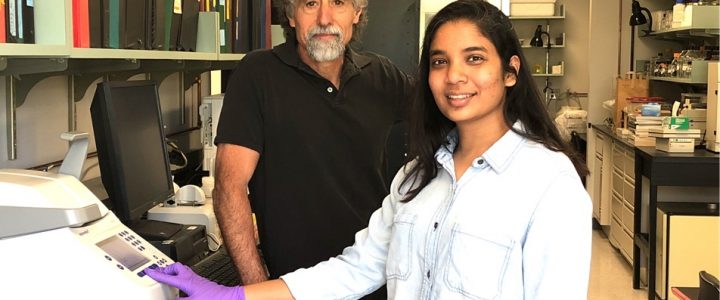
Explore groundbreaking research by the University of Massachusetts Medical School and Rush University Medical Center on alternative splicing in white blood cells as a biomarker for Fragile X syndrome, paving the way for personalized treatment optimization through a non-invasive blood test.
Read moreIdentifying Cellular and Molecular Signatures in Human Neurons That Distinguish Fragile X Syndrome Patients with Divergent EEG Profiles

Why is it so hard to find the right medications to help people with Fragile X syndrome? Just as Fragile X affects individuals differently, medications do as well. This project aims to bring personalized medicine to Fragile X syndrome.
Read moreFRAXA Drug Validation Initiative (FRAXA-DVI)

The FRAXA Drug Validation Initiative (FRAXA-DVI) provides speedy, cost-effective, objective preclinical testing of potential Fragile X treatments. FRAXA-DVI uses in-vitro systems, behavior batteries, and gene expression and peripheral biomarker platforms to validate investigational new drugs and repurposed available compounds in Fragile X syndrome (FXS).
Read moreAuditory Dysfunction in Fragile X Syndrome in a Mouse Model of Fragile X
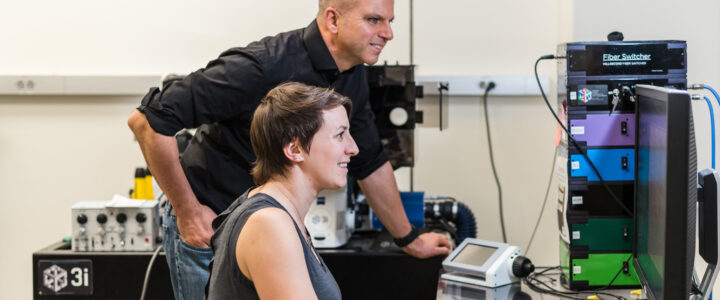
With a $90,000 grant from FRAXA, Dr. McCullagh and Dr. Achem Klug at the University of Colorado investigated whether auditory neural circuits are altered in Fragile X mice. They saw minor differences in these mice compared to B6 (control) mice in several measures of auditory acuity. Fmr1 mice had increased latency to the startle response for almost all conditions compared to B6 mice, suggesting altered timing to acoustic cues. These experiments show that, consistent with patient reports and anatomical/physiological data, the auditory system is altered in a mouse model of FXS, though with some potential compensation leading to a subtle behavioral impact.
Read moreFinding Fragile X Biomarkers – From Transcriptomics to Behavior in Patients

With this $20,000 award from FRAXA Research Foundation, Dr. Vanderklish and collaborators at Scripps Research Institute, the University of Chile, and the FLENI Institute in Argentina are analyzing patterns in gene expression in blood cells of patients with Fragile X syndrome. They are using “transcriptomics” which can produce a time-sensitive signature of an individual person. This is the first time that all these different levels of study – from transcriptomics to behavior – have been done for individual patients with Fragile X.
Read moreNon-Invasive Imaging as a Biomarker for Fragile X Clinical Trials
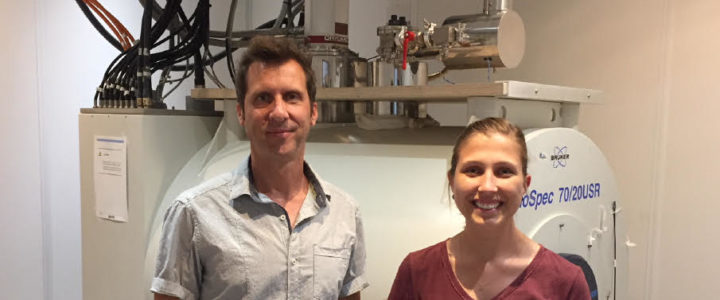
FRAXA Research Foundation has renewed Kamila Castro’s 2017 FRAXA Fellowship for a second year. With this $90,000 award, Kamila Castro and Principal Investigator Dr. Andreas Frick are using non-invasive magnetic resonance imaging (MRI) methodology to assess connectivity changes in the brain in Fragile X. If this project is successful, we will have objective outcome measures to evaluate new treatments, both in mice bred to mimic Fragile X and in human patients.
Read moreFragile X Clinical Trial of AZD7325 in Adults

With a $51,000 grant from FRAXA Research Foundation, Dr. Craig Erickson conducting a double-blind, placebo-controlled clinical trial of AZD7325 in adults ages 18-50 with Fragile X syndrome at Cincinnati Children’s Hospital. The compound being studied is an investigational new drug from AstraZeneca that targets GABA (A) receptors.
Read moreBrain Imbalance Target of Dr. Erickson’s New Clinical Trial

According to Dr. Erickson, AZD7325 is a drug that selectively boosts GABA neurotransmission in the brain. GABA is the primary neurochemical in the brain that blocks brain activation. GABA activity is in balance in the brain with Glutamate activity, which is the primary neurochemical that causes brain activation. In Fragile X, GABA activity is insufficient and glutamate activity is excessive, likely causing brain activity to be out of balance. AZD7325 attempts to correct parts of this imbalance by boosting the insufficient GABA activity in the brains of people with Fragile X.
Read moreCombinatorial Drug Treatment in a Model of Fragile X Syndrome using Novel Biomarkers

With a $90,000 grant from FRAXA Research Foundation awarded over 2016-2017, University of California researchers Khaleel Razak, PhD, and Jonathan W. Lovelace, PhD, are exploring drug combinations to limit hypersensitivity to sounds in Fragile X mice.
Read moreDefining Subcellular Specificity of Metabotropic Glutamate Receptor (mGluR5) Antagonists
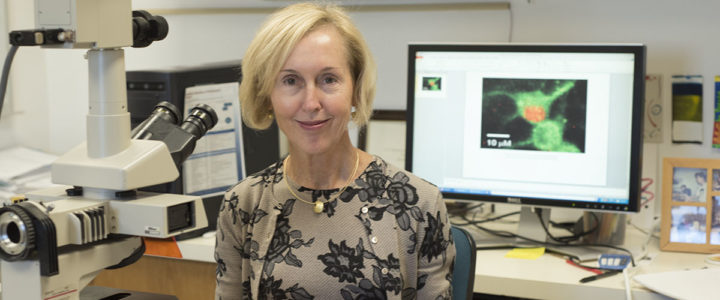
With $217,500 in grants from FRAXA Research Foundation, Dr. Karen O’Malley and team studied the function of mGluR5 when it is inside cells. Many of the symptoms of Fragile X Syndrome (FXS) are thought to arise due to overactive metabotropic glutamate receptor 5 (mGluR5) signaling, which is normally opposed by the protein missing in FXS, Fragile X Protein (FMRP).
Read moreNeural Markers of Fragile X: A Powerful New Tool for Clinical Trials
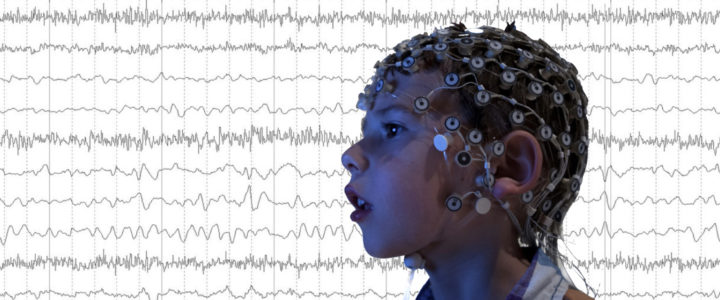
Once the neural marker is identified for a particular challenge, such as kids with poor language versus good language, neural markers can be measured during drug and behavioral therapy trials to see if a child is improving based on objective biological measures.
Read morePreclinical Testing of Sleep-Wake Patterns as an Outcome Measure for Fragile X

FRAXA Research Foundation awarded $122,000 over 2016-2018 to Dr. Cara Westmark at the University of Wisconsin at Madison for studies of sleep disorders in Fragile X syndrome.
Read moreBiomarker Discovery and Validation for Fragile X Syndrome

With a $120,000 grant from FRAXA Research Foundation over 2015-2016, Dr. Eric Klann of New York University investigated potential new biomarkers in Fragile X syndrome and how to translate these markers from mouse models to human patients.
Read moreA Kinase Assay as a Biomarker for Fragile X Syndrome

With a $90,000 grant from FRAXA Research Foundation over 2017-2018, Dr. Frank Kooy at the University of Antwerp, Belgium, is investigating whether phosphorylation abnormalities are a suitable biomarker for the Fragile X syndrome.
Read moreMicroRNAs as Biomarkers in Fragile X Syndrome

With a $90,000 grant from FRAXA Research Foundation in 2015-2016, Dr. Mollie Meffert and Dr. Christina Timmerman at Johns Hopkins University studied groups of small RNAs, known as microRNAs, which are greatly decreased in brain tissue of Fragile X mice vs. normal controls.
Read moreAltered Sleep in Fragile X Syndrome: Basis for a Potential Therapeutic Target

With a $90,000 grant from FRAXA Research Foundation over 2016-2018, Dr. Carolyn B. Smith and Dr. Rache Sare at the National Institute of Mental Health investigated the basis of sleep problems in Fragile X syndrome.
Read moreIdentifying Biomarkers for Fragile X Syndrome – A Study in Argentina

Bio·mark·er, noun, a distinctive biological or biologically derived indicator of a process, event, or condition. Doesn’t help? Well, it’s perfectly clear to Argentinian researchers Patricia Cogram, PhD, and Paulina Carullo, MD, from the FLENI Institute in Buenos Aires, Argentina. They understand there is an urgent need for validated biomarkers after recent Fragile X syndrome clinical trials have failed on their primary endpoints.
Read moreTargeting AMP-Activated Protein Kinase Pathway in Fragile X Syndrome

With a $100,000 grant from the FRAXA Research Foundation in 2015, Dr. Peter Vanderklish explored a novel strategy to treat Fragile X syndrome: AMPK activators. The good news is that there are FDA approved (for example, metformin) and naturally occurring AMPK activators (such as resveratrol, found in red wine).
Read morePhase 1 Clinical Trial of Mega Green Tea Extract in Fragile X Syndrome

With a $124,000 grant from the FRAXA Research Foundation from 2012-2014, Dr. Mara Dierssen and Dr. Rafael de la Torre conducted preclinical studies in Fragile X knockout mice and a clinical trial in Fragile X patients using Mega Green Tea Extract, which contains 45% by weight epigallocatechin gallate (EGCG).
Read more
